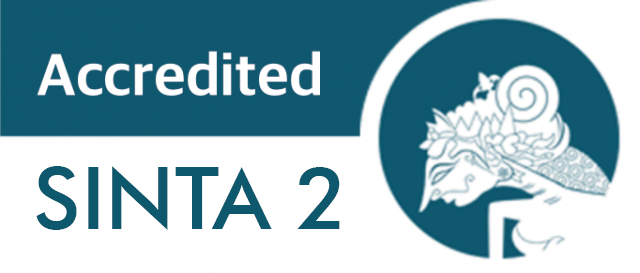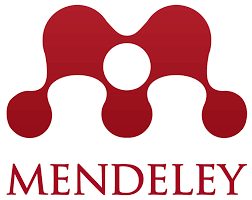Assessing the Moral Credentials of the Next Generation of Accountants
DOI:
https://doi.org/10.15408/tjems.v3i2.4166Keywords:
moral competence, accounting students, university education, ethics education, Islamic perspective, kompetensi moral, mahasiswa akuntansi, pendidikan tinggi, pendidikan etika, perspektif IslamAbstract
Abstract
This study assessed the progress of Malaysian universities in producing morally upright accountants by evaluating the moral competencies of the third-year accounting students enrolled at the Universiti Sains Islam Malaysia (USIM). An instrument was developed through a collaboration with Islamic accounting scholars; 79 third-year students were surveyed. The survey revealed that the current crop of the third-year accounting students were not morally competent enough to deal with the inevitable moral dilemmas they would face in the work place. The implication of this result is that USIM’s accounting department has to re-examine its current curriculum as to its ethics coverage.
Abstrak
Penelitian ini bertujuan untuk menilai perkembangan universitas-universitas di Malaysia dalam hal menghasilkan para akuntan yang jujur. Penelitian ini dilakukan dengan langkah mengevaluasi kompetensi moral mahasiswa akuntansi tahun ketiga di Universiti Sains Islam Malaysia (USIM). Instrumen yang digunakan adalah survey, yang dikembangkan melalui kolaborasi para cendekiawan muslim dengan mensurvey 79 mahasiswa tahun ketiga. Hasil survey menunjukkan bahwa para siswa tahun ketiga akuntansi pada zaman sekarang ini belum memiliki kompetensi moral dalam hal dilemma moral pada bidang pekerjaan mereka. Implikasi penelitian ini adalah berupa saran untuk jurusan akuntansi USIM untuk menguji kembali kurikulum mereka yang berkenaan dengan etika dan moral.
How to Cite : Zubairu, U. Sakariyau, O. Dauda, C. Paiko, I. (2016). Assessing the Moral Credentials of the Next Generation of Accountants. TARBIYA: Journal of Education in Muslim Society, 3(2), 168-185. doi:10.15408/tjems.v3i2.4166.
Permalink/DOI: http://dx.doi.org/10.15408/tjems.v3i2.4166
References
Abdulmohammadi, M. J., & Baker, C. R. (2007). The relationship between moral reasoning and plagiarism in accounting courses: A replication study. Issues in Accounting Education, 22(1), 45-55.
Abu Bakar, N., Ismail, S., & Mamat, S. (2010). Will Graduating Year Accountancy Students Cheat in Examination? A Malaysian Case. International Education Studies, 3(3), 145-152.
Accounting, Auditing, and Governance Standards for Islamic Financial Institutions, 1420H-1999, Bahrain: AAOIFI
Al-Ansari, E. M. (2002). Effects of gender and education on the moral reasoning of Kuwait university students. Social Behaviour and Personality: an international journal, 30(1), 75-82.
Altmyer, D., Yang, S. P., Schallenkamp, K., & DeBeaumont, R. (2011). Student ethical awareness and business program matriculation: Evidence from the US. Business Education & Administration, 3(1), 41-49.
Bayou, M. E., Reinstein, A., & Williams, P. F. (2011). To tell the truth: A discussion of issues concerning truth and ethics in accounting. Accounting, Organizations and Society, 36(2), 109-124.
Bosco, S. M., Melchar, D. E., Beauvais, L. L., & Desplaces, D. E. (2010). Teaching business ethics: The effectiveness of common pedagogical practices in developing students’ moral judgment competence. Ethics and Education,5(3), 263-280.
Chafi, R. M. (2013). The Effect of Accounting Education on Occupational Ethics. Retrieved from http://tjeas.com/wp-content/uploads/2013/10/3468-3474.pdf
Chaganti, V. K. (2012). A Study of Moral Judgment Competence among Indian Students. FedUni Journal of Higher Education, 2(1), 53-60.
Clipa, O., & Iorga, A. M. (2013). The role of school-family partnership on moral development. Procedia-Social and Behavioral Sciences, 76, 197-203.
Dellaportas, S. (2006). Making a difference with a discrete course on accounting ethics. Journal of Business Ethics, 65(4), 391-404.
Doyle, E., & O'Flaherty, J. (2013). The impact of education level and type on moral reasoning. Irish Educational Studies, 32(3), 377-393.
Eid, M. (2012). Paula S. Tompkins: Practicing Communication Ethics: Development, Discernment, and Decision Making. Journal of business ethics, 1-2.
Fontaine, M (2012). Integrating Narrative Fiction with Business Ethics to Enhance Moral Reasoning Applying an Ethical Framework and Case Discussion Instructional Model. Retrieved from http://aripd.org/journals/rcbr/Vol_1_No_1_December_2012/1.pdf
Freedman, D., Pisani, R., & Purves, R. (2007). Statistics (International Student Edition). WW Norton & Co, New York.
Halgren, K.A. (2012). Computing Inter-Rater Reliability for Observational Data: An Overview and Tutorial. Tutor Quants Methods Psychol., 8(1), 23-34.
Holmes, K., Marriott, L., & Randal, J. (2012). Ethics and experiments in accounting: A contribution to the debate on measuring ethical behaviour. Pacific Accounting Review, 24(1), 80-100.
Kavathatzopoulous, I. (2012). Assessing and Acquiring Ethical Leadership Competence. In Leadership through the Classics (pp. 389-400). Springer Berlin Heidelberg.
Kohlberg, L. (1958). The development of modes of moral thinking and choice in the years 10 to 16. University of Chicago.
Liaquat, A. W., Mall, A., & Shah, S. A. (n.d.). Religiosity, Education and Moral Judgment: A Comparative Study of University, College And Madrasah Students Of Pakistan. Retrieved from uni-konstanz.de
Malaysia Education Blueprint 2013-2025 (2012). Develop values-driven Malaysians. Retrieved from http://www.moe.gov.my/userfiles/file/PPP/Preliminary-Blueprint-Eng.pdf
Malaysian Institute of Accountants (2012). NIP Philosophy. Retrieved from http://www.iim.org.my/en/falsafah-pin
Malaysian Institute of Accountants (2012). NIP Philosophy. Retrieved from http://www.iim.org.my/en/falsafah-pin
May, D. R., & Luth, M. T. (2013). The effectiveness of ethics education: A quasi-experimental field study. Science and engineering ethics, 1-24.
Montgomery, D., & Walker, M. (2012). Enhancing Ethical Awareness. Gifted Child Today, 35(2), 95-101.
Özdemir, F. K., Şahin, Z. A., Dayapoğlu, N., & Alemdar, D. K. (2015). The Effect Of University Education On Moral Judgment Competence Of Nursing Students In Turkey. Retrieved from http://www.researchgate.net/profile/Dilek_Alemdar/publication/278667873
Padia, N., & Maroun, W. (2012). Ethics in business: The implications for the training of professional accountants in a South African setting. African Journal of Business Management, 6(32), 9274-9278
Phelan, C., & Wren, J. (2006). Exploring reliability in academic assessment.UNI Office of Academic Assessment.
Pleban, R. J., Graves, T. R., Miller, M. L., Donigian, A. M., Branciforte, J. V., & Matthews, M. D. (2011). Evaluating a Problem-Based Learning Strategy for Enhancing Ethical Awareness in Negotiation. Army Research Institute for the Behavioral And Social Sciences Fort Benning Ga Research Unit.
Rest, J. (1974). Judging the Important Issues in Moral Dilemmas- An Objective Measure of Development. Developmental Psychology, 10(4), 491-501.
Rest, J. R. (1986). Moral development: Advances in research and theory. Praeger Publishers.
Rest, J. R. (1989). Development in judging moral issues. U of Minnesota Press
Saat, M., Porter, S., & Woodbine, G. (2010). The effect of ethics courses on the ethical judgement-making ability of Malaysian accounting students. Journal of Financial Reporting and Accounting, 8(2), 92-109.
Saat, M., Stacey, P., & Gordon, W. (2009). Does religiosity influence ethical sensitivity? An investigation on Malaysian future accountants. Malaysian Accounting Review, 8(2), 17-41.
Savulescu, J., Crisp, R., Fulford, K. W., & Hope, T. (1999). Evaluating ethics competence in medical education. Journal of Medical Ethics, 25(5), 367-374.
Schillinger, M. (2006). Learning environment and moral development: How university education fosters moral judgment competence in Brazil and two German-speaking countries (Doctoral dissertation, Aachen: Shaker).
Schmidt, C. D., Davidson, K. M., & Adkins, C. (2013). Applying what works: A case for deliberate psychological education in undergraduate business ethics.Journal of Education for Business, 88(3), 127-135.
Self, D.J., Stramaski, A.J. & Engelhardt, J. A. (2013). Evaluation Of Changes In Moral Reasoning Skills In An Interprofessional Healthcare Ethics Course.
Shah, A. A. (2004). Self-Religiosity, Father’s Attitude and Religious Education in the Moral behaviour of Adolescents. Psychology of Developing Societies, 16(2), 187-207.
Sullivan, G. R. (2004). Enhancing Public Trust in the Accounting Profession Using Professional Judgment Rather Than Personal Judgment in Resolving Accounting Ethics Dilemmas (Doctoral dissertation, Regent University).
Thiel, C. E., Connelly, S., Harkrider, L., Devenport, L. D., Bagdasarov, Z., Johnson, J. F., & Mumford, M. D. (2013). Case-based knowledge and ethics education: Improving learning and transfer through emotionally rich cases. Science and engineering ethics, 19(1), 265-286.
Thomas, S. (2012). Ethics and Accounting Education. Issues in Accounting Education, 27(2), 399-418.
Titus, C., Zoltowski, C. B., Huyck, M., & Oakes, W. C. (2011). The Creation of Tools for Assessing Ethical Awareness In Diverse Multi-Disciplinary Programs. Retrieved from https://sharepoint.ecn.purdue.edu/doe/Mentoring/Shared%20Documents/1833.pdf
Wortel, E., & Bosch, J. (2011). Strengthening Moral Competence: A ‘Train The Trainer’course On Military Ethics. Journal Of Military Ethics, 10(1), 17-35.
Yeşilada, B., Noordijk, P., & Webster, C. (2009). Religiosity and social values of the Cypriots. Social Compass, 56(1), 15-34.
Yunus, S., & Abdul Rashid, M.Z. (2011). The Propensity of Applying Principled-Moral Reasoning Among Undergraduate Business Students in Malaysia. Canadian Journal on Scientific and Industrial Research, 2(8), 279-289.











